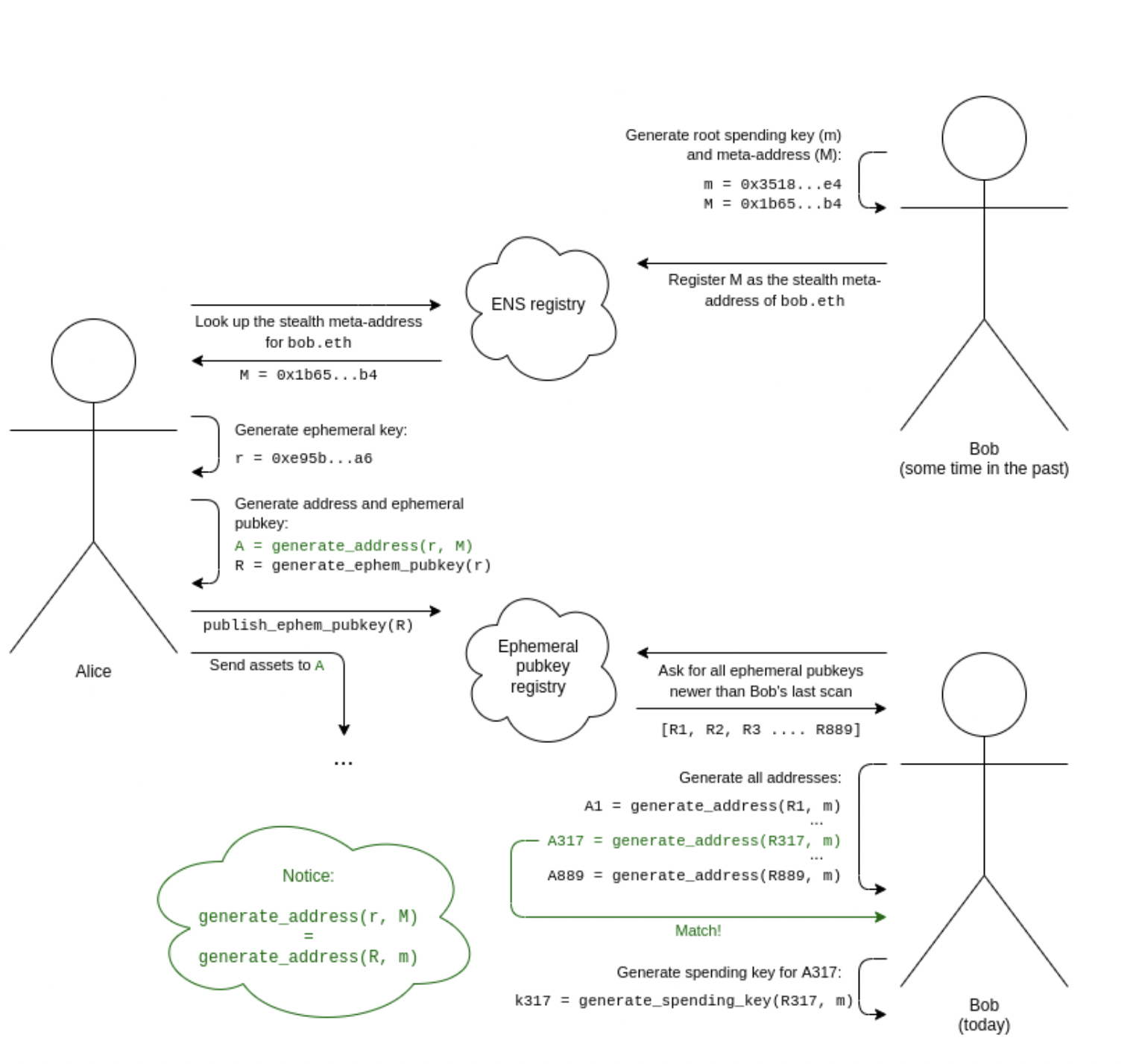[ad_1]
- Vitalik Buterin recently made a blog post detailing the importance of privacy solutions on the Ethereum network.
- Buterin seeks to potentially anonymize peer-to-peer transactions, NFT transfers and Ethereum Name Service registrations, protecting users.
- The US government’s sanction of Tornado Cash and European Union’s skepticism on privacy coins shows the need for anonymizing crypto transactions.
Ethereum co-founder Vitalik Buterin recently shared a blog post on a privacy enhancing solution for the Ether blockchain and its users. Buterin’s recommendation is in line with the need for anonymizing solutions at a time when the US Government and the European Union has toughened its stance on privacy enhancing coins and apps like Tornado Cash.
Also read: Here’s how Ethereum whales predict massive gains in meme coin Shiba Inu
Vitalik Buterin proposes anonymity in Ethereum network-based P2P transactions, NFT transfers
Vitalik Buterin, a Russian-Canadian computer programmer and the co-founder of the Ethereum Network has stressed the importance of privacy solutions on the blockchain, particularly in the form of stealth addresses in a new blog post.
Buterin believes that stealth addresses could potentially anonymize peer-to-peer transactions, non fungible token (NFT) transfers, and Ethereum Name Service (ENS) registrations, helping protect users.
The Ethereum co-founder proposed the idea of a “spending key” that generates a stealth meta-address. This address can then be passed on to the sender, who uses a cryptographic computation to generate a stealth address belonging to the receiver. With this system, a new stealth address is generated for each new transaction, creating privacy for the sender and receiver.

Workflow of the stealth address scheme
Buterin believes that stealth addresses could be implemented fairly quickly, and would be a significant boost to user privacy on Ethereum. However, there are some longer-term usability concerns, such as social recovery issues, which could be solved with more advanced zero-knowledge proof technology.
The introduction of stealth addresses could act as a catalyst for Ethereum, as it could increase the privacy of users on the network. This could drive demand for the altcoin, fueling a bullish narrative among ETH holders. As more traders join the Ethereum network due to its improved privacy features, demand for the altcoin increases.
Furthermore, stealth addresses could help Ethereum to better compete with popular privacy coins such as ZCash and Monero. These coins have grown in popularity due to their privacy features, and the introduction of stealth addresses could make Ethereum a lucrative alternative, driving users from these projects to the ETH network.
Governments are skeptical on privacy enhancing coins, with EU considering a ban
The US government recently sanctioned Tornado Cash, an open source, non-custodial, fully decentralized cryptocurrency tumbler. This project offers a service that mixes potentially identifiable or “tainted” cryptocurrency funds with others, so as to obscure the trail back to the fund’s original source. Thus offering privacy to its users.
Czech officials proposed a ban on privacy coins in the European Union in November. Since privacy coins like Monero prevent snooping into blockchain activity, the ban is intended to mirror one on anonymous instruments such as bearer shares and anonymous accounts, included in the original bill proposal.
In conclusion, Vitalik Buterin’s proposal for stealth addresses could be a major game-changer for Ethereum. Not only will it help to increase the privacy of users, but it could make Ethereum more competitive with other privacy coins.
[ad_2]
Read More: news.google.com









 Bitcoin
Bitcoin  Ethereum
Ethereum  Tether
Tether  XRP
XRP  Solana
Solana  USDC
USDC  TRON
TRON  Dogecoin
Dogecoin  Lido Staked Ether
Lido Staked Ether  Cardano
Cardano  Wrapped Bitcoin
Wrapped Bitcoin  Hyperliquid
Hyperliquid  Wrapped stETH
Wrapped stETH  Bitcoin Cash
Bitcoin Cash  Sui
Sui  Chainlink
Chainlink  LEO Token
LEO Token  Stellar
Stellar  Avalanche
Avalanche  Toncoin
Toncoin  WhiteBIT Coin
WhiteBIT Coin  USDS
USDS  Shiba Inu
Shiba Inu  WETH
WETH  Wrapped eETH
Wrapped eETH  Litecoin
Litecoin  Binance Bridged USDT (BNB Smart Chain)
Binance Bridged USDT (BNB Smart Chain)  Hedera
Hedera  Monero
Monero  Ethena USDe
Ethena USDe  Polkadot
Polkadot  Bitget Token
Bitget Token  Coinbase Wrapped BTC
Coinbase Wrapped BTC  Uniswap
Uniswap  Pepe
Pepe  Pi Network
Pi Network  Aave
Aave  Dai
Dai  OKB
OKB  Ethena Staked USDe
Ethena Staked USDe  Bittensor
Bittensor  BlackRock USD Institutional Digital Liquidity Fund
BlackRock USD Institutional Digital Liquidity Fund  Cronos
Cronos  Aptos
Aptos  Internet Computer
Internet Computer  NEAR Protocol
NEAR Protocol  Jito Staked SOL
Jito Staked SOL  sUSDS
sUSDS  Ethereum Classic
Ethereum Classic